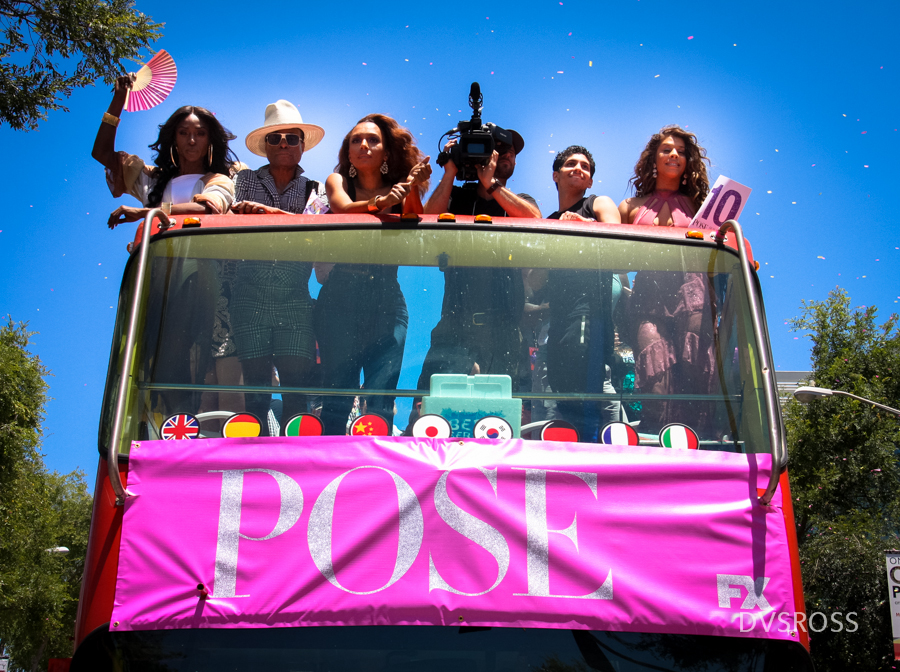The most damning question of our lives always approaches us in childhood: what do you want to be when you grow up?
The answers are all too familiar: a nurse, a doctor, an astronaut (or, today, maybe a YouTuber). In our young imagination, anything is possible, and even if our career plans change as we age, one goal often remains the same: we want to be remembered.
As Harvard undergraduates, we are not so different from these aspiring astronauts and vloggers. We join clubs, take classes, write, seek leadership positions, all to pursue our goals — yet, what is our final goal? It creeps from our childhood idealism, the ultimate telos: we seek to build a legacy.
In “Pose,” Ryan Murphy’s Emmy-Award winning drama series, Blanca Rodriquez-Evangelista (Mj Rodriguez) seeks to make her mark as a house mother in New York’s ball culture, creating one of dozens of houses which provide alternative families to runaway queer youth. As a Black trans woman, Blanca’s journey to establish her House — Evangelista — is marked by the struggles of the late Reagan Area. Her house children suffer from poverty, violence and drug abuse. Her loved ones often fall victim to HIV and AIDS. Her journey to establish her dream nail salon is foiled by a transphobic property manager, Frederica Norman, who devotes herself to the salon’s destruction due to Blanca’s race and gender identity. In the journey towards making her womanhood known to the world, Blanca must fight for her right to merely exist.
In this struggle, Blanca often finds that hope is deceptive. Behind each achievement, from her son Damon’s recruitment at the prestigious New School of Dance to her daughter Angel’s early success at the Ford modeling agency, her other loved ones test positive for HIV and struggle with the disease. Family fights and separations are common, often testing the stability of Blanca’s motherhood altogether. Even when Blanca finally believes that ball culture is being brought to public acceptance, in the mass popularity of Madonna’s “Vogue,” she soon finds her community’s needs are still neglected by society at large, especially in light of the devastating AIDS pandemic. Suffering is common, and even when prospects look up, they are always vulnerable.
In this depiction of ballroom life, “Pose” masterfully captures the fragility of life that queer people of color faced in late-20th century New York and still face today across the world. In a society built on systemic oppression, Blanca finds that pursuing her dreams requires combating the intersectional struggles of racism, classism and transphobia. Yet, through each trial, Blanca remains resilient, refusing to ever bow to the wishes of her enemies.
Through her long-term goal setting and soulful guidance, Blanca sets the stage for a new and valuable discussion on remembrance. In an era where death and denial seem to steal each opportunity, Blanca seeks to defy society itself in an unapologetic pursuit of her dreams. However, Blanca, in what seems to be the waning moments of her life in season two finale, realizes her legacy was ultimately tied to the destinies of her children. Damon is now a world-class dancer, finding his own house in Europe. Angel recovers her professional modeling career despite previous discrimination. Blanca dedicates her life to the service of her children and her community, realizing her dreams only once her children have realized theirs.
Such is the task of building a legacy. It is not often told like this to us as children in an unequal world. The pursuit of our dreams may often be stunted by abuse, trauma and rejection from our communities. Often, our legacy is only shown in the waning moments of our lives, never revealing itself in our living days. Because of this, it becomes easy to let the foundations of our dreams waver; why pursue them in a world of impossibility? Blanca is also troubled by these same considerations, from her battle with HIV to the struggles to build her career. However, in her resilience and unwavering passion, she serves as an example of what must be done to shake up such a world of inaccess. To be remembered is to defy the odds, to antagonize the structures which seek to undermine our communities, to love and serve even when it is hard. Blanca does not seek to be remembered for her successes, but rather for the impact she has had on those she loves. For Blanca, being remembered means overcoming a world built on her oppression.
Blanca does not ever achieve her young dream of being a performer. She later loses her salon, and with it her life’s savings and her dream. She becomes convinced that she will never build the legacy she so desperately desired. However, in the waning moments of her life, she sees the full realization of her dreams: her children flourishing and her community’s deep admiration and love. She is not remembered for what she sought to achieve, but for the love and support she provided to countless members of her community, even those which often did not deserve it.
Blanca Evangelista is a sobering reminder of what it means to be remembered. At the end of the long and arduous struggle of life, we mark our presence on Earth with the love we have provided to those that must continue without us.
Approximately 33 million people have died of AIDS globally. Thousands are still infected every year. The fight for justice against AIDS continues today — it is and has always been time to ACT UP!
Image Credit // Google Images



